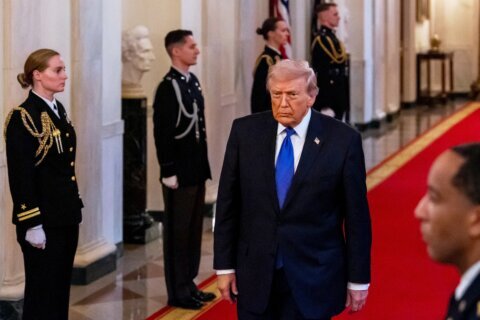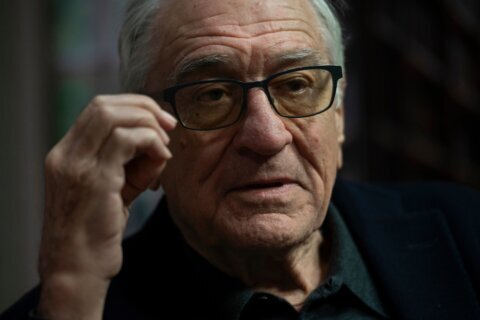It’s hard to find a show more beloved than “The Wonder Years,” which was appointment viewing for families on ABC from 1988 to 1993. It was set exactly 20 years earlier, from 1968 to 1973 as Kevin Arnold grew up in a middle-class white family in suburban America.
If you somehow missed it, pull it up right now and binge the entire thing — it’s that good. Creators Neal Marlens and Carol Black revolutionized a single-camera filming style and boldly scrapped the laugh track, two techniques that would influence sitcoms to follow.
On Wednesday night, Fred Savage directs the pilot of ABC’s new “The Wonder Years,” which is technically a reboot but is thematically so much more. Creator Saladin K. Patterson is determined to show the other side of American history, by following the life of a middle-class Black family during the exact same time period in Montgomery, Alabama.
Time and place are everything, and here it’s a more specific location than the original series’ location of Anytown, USA, which was a composite of Marlens’ childhood in Huntington, Long Island and Black’s hometown of Silver Spring, Maryland. As we’re told, “The previous summer’s race riots had caused the first wave of white flight to the suburbs.”
Unlike the trailer, my advance screener sadly didn’t feature the theme song “With a Little Help from My Friends” by Joe Cocker, whose cover version was even better than The Beatles. At least we get the same title logo and a throwback soundtrack boasting “Green Onions” by Booker T. & The MG’s, which was memorably featured in “The Sandlot” (1993).
We do, however, get the same narrative device of voiceover narration, this time by Don Cheadle instead of Daniel Stern. The narration is what made “The Wonder Years” so beloved in the first place, tapping into the same nostalgic magic as “A Christmas Story” (1983), whose Peter Billingsley actually appeared as Kevin’s college roommate.
It’s tough to replace an actor as iconic as Savage, who at age 13 became the youngest lead actor Emmy nominee in 1989. Still, Elisha “EJ” Williams is lovable as Dean Williams, his facial expressions dovetailing nicely with Cheadle’s voiceover: “Wearing glasses in junior high was basically telling your cousin to get a prom dress ready.”
While Dan Lauria’s Jack and Alley Mills’ Norma wonderfully epitomized parents of the “Silent Generation” in the original series, this time it’s “West Wing” alum Dulé Hill as Bill, a music professor and funk musician who reminds the family to “keep cool,” and “Scandal” alum Saycon Sengbloh as Lillian, who can resiliently fold laundry with tears streaming.
“My parents had high standards for us. I appreciate it now and so does my bank account,” Cheadle narrates. “It’s the little things that you remember the rest of your life: your first hit, your first kiss, the first time your dad lets you know that he sees you.” He later admits, “I’d never be as popular as my sister, as smart as my mom or as ‘bad’ as my dad.”
As for the siblings, who can forget Jason Hervy as Wayne and Olivia d’Abo as Karen? This time, it’s Laura Kariuki as Dean’s activist sister Kim. There’s also brief mention of a faraway brother, as his mom says, “What did I tell you about bothering Bruce’s things while he’s away?” “‘Away’ was the word my mom used instead of ‘in Vietnam,'” Cheadle says.
He also gets a little help from his friends. Replacing Josh Saviano’s Paul Pfeiffer is Amari O’Neil’s Cory Long, the son of Coach Long (Allen Maldonado, “Black-ish”). “When we hit puberty, he grew six inches in height and six inches of hair where it counted.” There’s also Julian Lerner as Brad Hitman, who he calls the “Pee Wee Reese to my Jackie Robinson.”
Last but not least, Danica McKellar’s Winnie Cooper is replaced by Milan Ray’s Keisa Clemmons, who is revealed in a creative bit of slow disclosure on the school bus. We initially think Dean has a crush on the popular pretty girl, but he is actually in love with the tomboy behind her, wearing a letterman jacket and putting bullies in headlocks.
The writing has all of the on-the-nose elements you’d expect from Disney-owned network television. The racial commentary comes quick and often: “It’s weird to grow up in a time when your parents have to give you ‘the police talk’ or a presidential election creates a racial divide.” He could be talking about today, but he’s actually talking about 1968.
The writers deftly juggle two opposing ideas, arguing that the good old days weren’t good for everyone (“There were teams called the Redskins, Chiefs and Savages and no one batted an eye”), while offering occasional nostalgia for the days before society got too uptight (“If a coach said that today, they’d make him go to sensitivity training”).
Out of this comes thoughtfulness, particularly in their white teacher’s treatment of Black students. “She’s not prejudiced,” Dean’s classmate insists, to which Cheadle narrates, “Was she? In my memory, she was, but she also gave some of us Black students extra attention if she thought we had potential, which might have also been racist. I don’t know.”
The bus even drives by their old Black elementary school, from before desegregation became the law of the land. “A lot of Black folks like my dad didn’t feel like we needed to mix with White folk to be better off,” Cheadle narrates. “My dad put his money where his mouth was. He’d always hire the Black doctor, the Black accountant, the Black plumber.”
Dean’s generation doesn’t feel the same way. His goal in Episode 1 is to integrate the sandlot like Kenny DeNunez pitching to Bennie “The Jet” Rodriguez. “Some people didn’t feel like we needed to mix Black people with White people,” Cheadle narrates. “I didn’t understand all that, but I decided what my ‘bad’ would be: The Great Uniter.”
It all builds to a tragic moment where real-world politics intrude, as white spectators reach out to the Black parents. As Walter Cronkite delivers the news on the TV set, Cheadle narrates, “I didn’t understand a lot of what was going on, especially why when people get really upset about something bad they resort to destroying their own things.”
If you want an escape from racial politics, this is not the show for you. On second thought, it is exactly the show for you, because it just might make you reconsider the need for such racially themed shows in the first place as our nation finally reckons with its messy past.
Detractors will say the filmmakers should pull themselves up by their own original bootstraps instead of relying on a reboot, but bootstraps talk is tricky. As Martin Luther King Jr. once said, “It’s all right to tell a man to lift himself by his own bootstraps, but it is cruel jest to say to a bootless man that he ought to lift himself by his own bootstraps.”
Black filmmakers have been bootless for too long in Hollywood.
Let’s give the new “Wonder Years” a chance.









